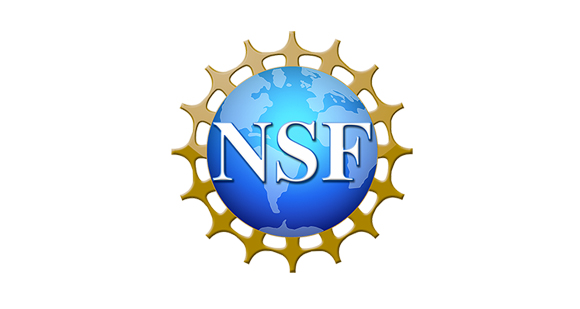Opportunities in Basic Research in Developmental Sciences and in the Science of Learning at NSF

Apply for Developmental Sciences funding opportunities by clicking here, and apply for Science of Learning funding opportunities by clicking here.
Reflecting promising new directions in research in two main areas in psychological science, research in learning and in lifespan development will now each have dedicated programs at the National Science Foundation (NSF), called the Science of Learning (SL) program and the Developmental Sciences (DS) program, respectively.
NSF has a history of strong support for research on the basic processes involved in learning, but the new SL program will focus on supporting individual investigators as a Core Program [1] of the Division of Behavioral and Cognitive Sciences (BCS). At the same time, the DLS program has changed to Developmental Sciences (DS), reflecting a broadened emphasis on developmental processes across the lifespan.
Developmental Sciences
The Developmental Sciences (DS) program aims to broaden the scope of developmental work supported by NSF. Under the old structure, DLS projects focused primarily on developmental research on infancy through adolescence. The updated DS program will support research spanning multiple domains of development (e.g. cognitive, social, and motor) and will examine all stages of the human and animal lifespan, including infancy, childhood, adolescence, and adulthood.
DS Program Director David S. Moore emphasized that developmental science is a “unitary process,” meaning it incorporates multiple levels of analyses and cross-sectional and longitudinal designs. According to Moore, DS will continue to support research focusing on the potential effects of environmental stimuli—such as family, peers, community, and epigenetics—on developmental processes as well as research embracing multi-method and multidisciplinary approaches.
Recent DLS/DS awards address a wide array of developmental processes, from changes in cortical motion processing across infancy to adulthood, to emotional development in urban adolescents, to gesturing in relation to language development among children with autism spectrum disorder.
Science of Learning
The new Science of Learning (SL) program evolves out of the previous Science of Learning Centers program, which supported research centers and trained students but did not fund any additional grants on learning science. The new SL program will support many different kinds of learning sciences projects and will also re-focus efforts on basic research into such topics as learning resilience and transferring learning experiences to memory.
According to APS Fellow Howard Nusbaum, who is currently serving as BCS Division Director, under the previous structure the DLS program’s support for research in learning was guided by developmental questions, leaving non-developmental learning science—and even adult-focused developmental science—to other BCS Core Programs.
The new SL Core Program, Nusbaum notes, will “support basic research on learning over a wide range of approaches, without restriction to a particular group or age of species,” and recognizes that “there are multiple influences and mechanisms of learning [that] are not strictly developmental.”
Continuing Opportunities
Moore and others stress that these program changes will not negatively affect existing ways that psychological scientists are funded by BCS. For example, the DS and SL programs will continue reviewing grant proposals and workshop proposals, Faculty Early Career Development (CAREER) proposals for tenure-track faculty, Early-concept Grants for Exploratory Research (EAGER) for “high risk-high reward” preliminary research, and the Research in Undergraduate Institutions (RUI) and Research Opportunity Awards (ROA), two mechanisms that support faculty research in predominantly undergraduate institutions. Researchers may also request that their proposals, if addressing fundamental questions across disciplines, be reviewed, and potentially funded, by multiple programs.
As for students, funding opportunities will still be offered through supplements, which are small amounts of additional funding added to existing awards and handled on an ad-hoc basis by the relevant NSF Program Officers.[2] The NSF-wide Research Experiences for Undergraduates (REU) supplements, for instance, allow for small groups of undergraduate students to work at a project-based research site at their institutions. In addition, the NSF-wide Graduate Research Fellowship Program (GRFP) “continues to be an avenue through which graduate students in their first or second year can obtain funding to help cover the costs of their graduate educations,” says Moore.
For more information about the DS program, including recent funding announcements and contact information, please visit the program’s NSF webpage. More information on the new SL program can be found here.
(Read Howard Nusbaum’s guest Presidential Column in the January 2017 Observer by clicking here.)
-Gabriela Galeano
Notes
[1] While there is no official NSF definition, a Core Program is a long-standing program which regularly funds research projects, workshops, and—depending on the program—dissertation improvement grants.
[2] Principal Investigators (PIs) are encouraged to contact the Program Officer managing their active award prior to submitting a supplement proposal.





APS regularly opens certain online articles for discussion on our website. Effective February 2021, you must be a logged-in APS member to post comments. By posting a comment, you agree to our Community Guidelines and the display of your profile information, including your name and affiliation. Any opinions, findings, conclusions, or recommendations present in article comments are those of the writers and do not necessarily reflect the views of APS or the article’s author. For more information, please see our Community Guidelines.
Please login with your APS account to comment.